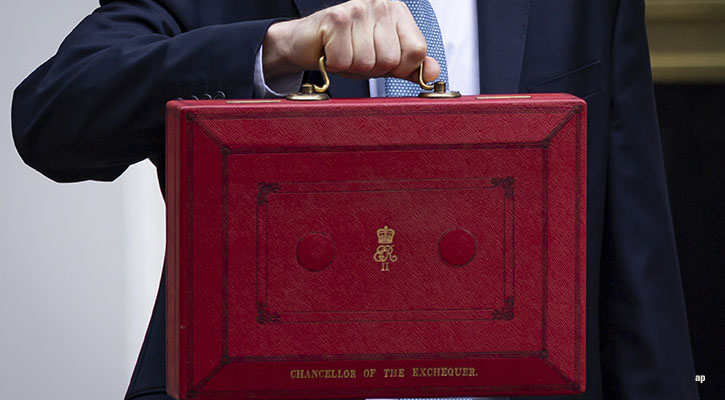
I love a bit of politics. But there’s something about political columnists that irks me. They don’t spend enough time tracking what they’ve already written. Then they end up in Private Eye exposed for being inconsistent. Let me have a go at being consistent.
Just over four months ago we were gearing up for Jeremy Hunt’s first Autumn Statement. It was a make-or-break moment, in which the UK’s third chancellor in as many months had to convince markets that sound management was back on the table, and that unfunded tax breaks were a thing of the past. He largely succeeded. As usual, the poor came second.
£2.75 Billion?
At that time, I highlighted a longer-term political time bomb, which lay at the doorstep of the UK’s latest prime minister, one Rishi Sunak. In his initial failed bid for the Tory leadership, the Richmond MP had already rubbed a lot of his party members up the wrong way with his slick metropolitan demenour, and what can only be described as some appallingly bad press (see the news stories about funding formulas and deprived urban areas). On the big political problem, though, I said:
"At the heart of this comes a very difficult choice. Initially, it is a question of who Sunak least wants to annoy. Failing to present a viable plan to balance the books will dismay those Tories so spooked by Liz Truss’s cavalier Budget backflipping. That could spook markets again too.
"Likewise, big tax rises will irritate those who see expansion of the state as a betrayal of their party’s core values, and a dereliction of the opportunity to govern in the way 'Mrs Thatcher' intended. The malleability and durability of her legacy is second only to Churchill’s."
If you’re wondering where we are now at with this political tussle over what modern conservatism is, you can rest assured this week’s Budget did absolutely nothing to solve it.
For sure, there were plenty of measures designed to prevent difficult conversations between Tory MPs and their voters at the doorstep when the next election swings by – this is particularly the case for the so-called "red wall", which one poll this week forecast to all but transfer back to Labour when the UK once more goes to the ballot box.
Indeed, there was plenty of positive talk. For one, the Tories actually did something for millennials, whose latest reason to feel victimised is the astronomical cost of childcare.
And the absence of any state pension age decision in the speech itself shows you all you need to know about the chancellor’s priorities in not rocking the boat too much when it comes to the looming sense that we are all going to have to work longer (and possibly for less money in real terms!). Consider that can well and truly kicked down the road. But good news costs money. And on Wednesday the Office for Budget Responsibility reminded us once more just how much money that could be.
The 2022 Autumn Statement wasn’t even the first time the topic was raised, but the UK’s "tax burden" (taxation as a percentage of gross domestic product) is still very high (nay, the highest in peacetime memory) after the pandemic, and Wednesday did nothing to reverse that. Scrapping the lifetime allowance will delight advisers and pension wonks, but it’s going to cost the exchequer £2.75 billion. That's a staggering amount of money to spend on a policy most people cannot even explain, and some people will never even benefit from.
Now, as my colleague James Gard has observantly noted, there’s also something of the Swede in Jeremy Hunt’s political brain. In the Autumn Statement he spoke of his admiration of Japan (longer-term followers of Hunt will remember his marital gaffe in 2018). This time he seemed to nod to Sweden as a model of happiness: high-tax, and high-wage. That’s great. If only his fellow party members saw it that way. If only the OBR saw it that way. It still forecasts a record hit to UK living standards. Hardly something the Swedish would envy.
More Culture Wars
For the Labour party, the cost of the Budget is the cost of vital good news – vital sticking plasters – at a point where good news seems scant and the febrile political atmosphere produced by culture wars large and small make us all vulnerable to radicalisation of some kind. And everyone knows that a single Budget isn’t going to fix everything.
That doesn’t mean a Labour victory is guaranteed though. After 14 years of Conservative (or Conservative-led) Budgets, next year could see a return to square one: a hung parliament, and, potentially, another coalition: great for fans of co-operation and dealmaking – terrible for anyone who wants to draw a line under this whole period. In 2010 Nick Clegg said the country had voted to do politics differently. But coalition had never really been on the ballot paper. Nobody voted for it, per se. It was an accident. Like when cavalier bakers mix cake recipes and create something unintentional but still edible.
I’ll stop the silly conjecture and end where I began: consistency. Jeremy Hunt may have survived the week without any huge political u-turns or major political embarassments, but his and Rishi's party is still one with a big problem on its hands. If the political tussle over the size of the state in any way risks internal unity or a Conservative majority on the doorstep, the Party will be more tempted than ever to rely on that febrile political environment to tempt voters into believing they really do have something to fear. More culture wars are ahead.
Ollie Smith is UK editor at Morningstar








.jpg)


.jpg)

















